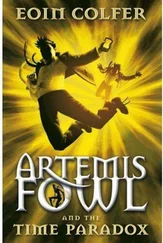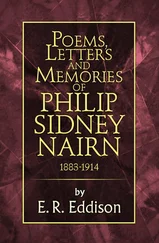Emma Marshall - Penshurst Castle in the Time of Sir Philip Sidney
Здесь есть возможность читать онлайн «Emma Marshall - Penshurst Castle in the Time of Sir Philip Sidney» — ознакомительный отрывок электронной книги совершенно бесплатно, а после прочтения отрывка купить полную версию. В некоторых случаях можно слушать аудио, скачать через торрент в формате fb2 и присутствует краткое содержание. Жанр: foreign_prose, на английском языке. Описание произведения, (предисловие) а так же отзывы посетителей доступны на портале библиотеки ЛибКат.
- Название:Penshurst Castle in the Time of Sir Philip Sidney
- Автор:
- Жанр:
- Год:неизвестен
- ISBN:нет данных
- Рейтинг книги:4 / 5. Голосов: 1
-
Избранное:Добавить в избранное
- Отзывы:
-
Ваша оценка:
- 80
- 1
- 2
- 3
- 4
- 5
Penshurst Castle in the Time of Sir Philip Sidney: краткое содержание, описание и аннотация
Предлагаем к чтению аннотацию, описание, краткое содержание или предисловие (зависит от того, что написал сам автор книги «Penshurst Castle in the Time of Sir Philip Sidney»). Если вы не нашли необходимую информацию о книге — напишите в комментариях, мы постараемся отыскать её.
Penshurst Castle in the Time of Sir Philip Sidney — читать онлайн ознакомительный отрывок
Ниже представлен текст книги, разбитый по страницам. Система сохранения места последней прочитанной страницы, позволяет с удобством читать онлайн бесплатно книгу «Penshurst Castle in the Time of Sir Philip Sidney», без необходимости каждый раз заново искать на чём Вы остановились. Поставьте закладку, и сможете в любой момент перейти на страницу, на которой закончили чтение.
Интервал:
Закладка:
Now several years had passed, and he had regained Elizabeth's favour, and had withdrawn his opposition.
The French Ambassadors, who were to arrive in England in the following week, were to be entertained with grand feasts and games, in which he and his chief friend, Fulke Greville, were to take a leading part.
Perhaps no one in that congregation knew or dreamed that their ideal knight, as he stood up in his place amongst them, with his thoughtful face turned towards the nave of the church, had his heart filled with misgivings as to the part he had taken in this matter, and with still deeper misgivings as to the position in which he found himself with the only woman whom he loved and worshipped.
While the good clergyman was preaching a somewhat dull sermon from the words, 'Fear God, honour the King,' following the particular line acceptable in those days, by enforcing loyalty and devotion to the reigning sovereign as the whole duty of man, Philip, leaning back in his seat, his head thrown back, and that wistful, far-away look in his eyes, which enhanced their charm, was all unconscious of what was passing around him, so absorbed was he with his own thoughts.
He roused himself when the first words of a psalm were sung by the village choir in Sternhold and Hopkins' version, and bending over the book, which his sister Mary had opened, pointing her finger to the first line, he raised his musical voice and sang with her the rugged lines which called upon 'All people that on earth do dwell, to sing to the Lord with cheerful voice.'
Then the clergyman pronounced the blessing, and the congregation dispersed, the village people to their homes, the Sidneys towards the gate leading into the pleasance, which lay on the side of the house nearest to the church.
Mary Gifford held back, in spite of Lucy's entreaties to her to go forward.
'They will all have passed in, Mary,' she exclaimed in an agony of excitement. 'Were we not bidden to see the Countess by Mr Sidney himself.'
But Mary was always modest and retiring, and she stood with Ambrose and her sister awaiting a summons.
It came at last. Humphrey Ratcliffe was at her side, saying, —
'My Lady of Pembroke would fain speak with Lucy. Come forward with me.'
As they followed Humphrey through the gateway in the wall, Lucy could scarcely conceal her agitation.
What should she say? What if Lady Pembroke thought her too young and too ignorant? She had pictured to herself that Mr Sidney would himself have led her to his sister, but he was gone out of sight, and she heard one of the gentlemen say to Humphrey, —
'Sir Fulke Greville has arrived with a message from the Queen. Mr Sidney has gone round to meet him.'
'Ill news, I wonder?' Humphrey said.
'Nay, only some trifle about the tourney, belike a change in the colour of the armour, or some such folly.'
Mary and her little son and Lucy were now standing at the end of the terrace walk of smooth turf, which is raised some feet above the wide pleasance below.
'Await the Countess's pleasure here,' Humphrey said. 'She is engaged in talk with Lady Mary, she will send to summon you when she sees fit.'
The ladies and gentlemen in attendance on Lady Mary Sidney and her daughter were threading the narrow paths of the pleasance and chatting gaily with each other, the bright dresses of the ladies, rivalling the colour of the spring flowers in the beds, while the jewelled hilts of the gentlemen's swords sparkled in the sunshine.
From the trees in the Park came the monotonous note of the unseen cuckoo, while the thrushes and blackbirds every now and then sent forth a burst of song, though it was nearly nigh noontide, when the birds are often silent, as if, in the general rejoicing of the spring, all living things must take part.
The picturesque side of the home of the Sidneys, which faces this pleasance, was in shadow, and made a background to the gay scene, which accentuated the brilliant effect of the gay throng below it.
On the terrace Mary Gifford stood in her black garments, relieved by a long white veil, holding her impatient boy by the hand, while Lucy, no less impatient, was hoping every minute that she should receive a message from Lady Pembroke. The group at last caught the attention of Lady Mary, who had been in earnest conversation with her daughter.
'Ah! there is Mistress Gifford,' she exclaimed, 'and the little sister of whom Philip spoke as suitable to be one of your waiting-women. Let us hasten to speak with them. They have been, I fear, waiting too long.'
'Yes; it was heedless of me to forget them; but there is the bell sounding for dinner in the hall, shall we not bid them sit down at the board? They must needs be weary after their long walk, and the service, to say naught of the sermon,' Lady Pembroke added, laughing.
'Hush, then; I see the good minister coming towards us. He means well, and is a godly man.'
'I do not doubt it, sweet mother; but let us mount the steps to the terrace, and show some courtesy to those waiting our pleasure there.'
'They are coming towards us, Mary. Mary!' Lucy exclaimed, 'come forward and meet them.'
'Yes, mother,' Ambrose said fretfully, dragging at his mother's hand. 'I thought I was to see Mr Sidney, and that he would let me ride again. I am so weary and so hungry.'
Lady Pembroke soon tripped up the stone steps, Lady Mary following more slowly. Lady Pembroke had all the graceful courtesy which distinguished her brother; and that high-bred manner which, quite apart from anything like patronage, always sets those who may be on a lower rung of the social ladder at ease in casual intercourse.
There are many who aspire to be thought 'aristocratic' in their manners, and who may very successfully imitate the dress and surroundings of the old noblesse. But this gift, which showed so conspicuously in the family of the Sidneys, is an inheritance, and cannot be really copied. It is so easy to patronise from a lofty vantage ground, so difficult to make those below it feel that the distance is not thought of as an impassable gulf, but is bridged over by the true politeness which lies not on the surface, but has its root deep in the consideration for others, which finds expression in forgetfulness of self, and in remembering the feelings and tastes of those with whom we are brought in contact.
Like the mists of morning under the warm beams of the sun, Mary Gifford's restraint and shy reserve vanished when Lady Pembroke exclaimed, —
'Ah, here is the little knight that Philip told me of. See, mother, he must be a playfellow for your Thomas.'
Lady Mary was somewhat breathless. She could not climb the steep, stone stairs as quickly as her daughter.
'Mistress Gifford must stay and dine with us, Mary, and then Thomas shall show him the pictures in the new book Philip has brought him from London.'
'Are there pictures of horses and knights, madam?' Ambrose asked.
'They are Bible pictures, boy, but there are warriors amongst them, doubtless – Joshua and Samson, and, it may be, others.'
The big bell which, to this day, is heard far and near at Penshurst, was still making its loud, sonorous clang, and Lady Mary, taking Ambrose by the hand led him along the terrace, his mother at the other side, and Lucy following with Lady Pembroke.
Instead of immediately beginning to discuss the probability of Lucy's being placed in her household, Lady Pembroke said, —
'I have not seen you for some time. You have grown apace since my marriage. Yet my brother, when he spoke of you, called you Mistress Gifford's little sister. You are taller than I am, methinks.'
Lucy's face glowed with pleasure, as Lady Pembroke said this.
'And most like you have yet to grow a few inches.'
'Nay, madam; I am near sixteen.'
'And is sixteen too old to grow? I think not. It is the age to grow in wisdom as well as in stature.'
Читать дальшеИнтервал:
Закладка:
Похожие книги на «Penshurst Castle in the Time of Sir Philip Sidney»
Представляем Вашему вниманию похожие книги на «Penshurst Castle in the Time of Sir Philip Sidney» списком для выбора. Мы отобрали схожую по названию и смыслу литературу в надежде предоставить читателям больше вариантов отыскать новые, интересные, ещё непрочитанные произведения.
Обсуждение, отзывы о книге «Penshurst Castle in the Time of Sir Philip Sidney» и просто собственные мнения читателей. Оставьте ваши комментарии, напишите, что Вы думаете о произведении, его смысле или главных героях. Укажите что конкретно понравилось, а что нет, и почему Вы так считаете.












